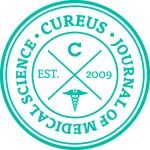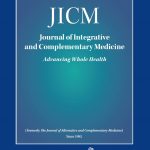Cidéli de Paula Coelho, Priscilla Dias Motta, Mariana Petrillo, Renata de Oliveira Iovine, Luciane Costa Dalboni, Fabiana Rodrigues Santana, Michelle Sanchez Freitas Correia, Renato Corrêa Viana Casarin, Vania Maria Carvalho, Leoni Villano Bonamin
Homeopathic medicine Cantharis modulates uropathogenic E. coli (UPEC)-induced cystitis in susceptible mice
Cytokine, 2017, 92, 103-109

Objective – This is a random blinded placebo controlled murine experimental model to study the effects of Cantharis 6 CH, a homeopathic medicine, on E coli-induced cystitis. Methods – 24 adult susceptible female BALB/c mice were inoculated with E coli – UPEC O4:K-:H5 by a transurethral catheter. Cantharis 6cH or vehicle (placebo) was offered to mice by free access into the drinking water (1:100), during 24 h after infection. Spleen, bladder and kidneys were processed for quantitative histopathology after immunohistochemistry, using anti-CD3, CD79, MIF, NK and VEGF antibodies; the cytokines present in the bladder washing fluid were measured using a LUMINEX-Magpix KIT. Mann-Whitney and Fisher exact test were used as statistical analysis. Results – Cantharis 6 CH increased IL12p40, IFN-γ and decreased IL10 concentrations in the bladder fluid (p ⩽ 0.05); in the bladder mucosa, it increased the ratio between B and T lymphocytes (31%) and between B lymphocytes and MIF+ macrophages (57%, p ⩽ 0.05). In the pelvis, instead, it decreased the B/T cells ratio (41%, p ⩽ 0.05) and increased the M1/M2 macrophage ratio (42%, p ⩽ 0.05). No differences were seen in the kidney and spleen analysis. Conclusion- The inverted balance of inflammatory cells and cytokines in bladder and pelvis mucosa shows specific local immune modulation induced by Cantharis 6cH.








Lascia un commento
Devi essere connesso per inviare un commento.